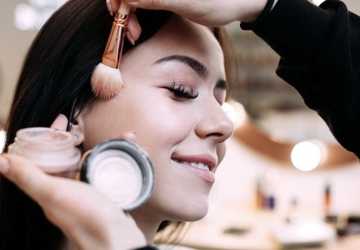health
When addressing what are parabens, it's essential to start with their basic definition. Parabens are a group of synthetic compounds widely used as preservatives in the cosmetic and pharmaceutical industries. Their primary function is to prevent the growth of harmful bacteria, mould, and yeast, thereby extending the shelf life of products. Parabens are commonly found in shampoos, moisturisers, lipsticks, and deodorants. They are valued for their effectiveness and low cost, making them a popular choice in many personal care products.

The Presence of Parabens in Cosmetics
In discussing parabens in cosmetics, it's noteworthy that these chemicals are used in small quantities, often making up less than 1% of a product's total composition. Despite their widespread use, there has been growing concern over the potential health risks associated with paraben exposure. Studies have shown that parabens can penetrate the skin and remain within tissue, leading to questions about their safety.
Debating the Safety: Should You Avoid Parabens?
Whether you should avoid parabens is a topic of ongoing debate among scientists and health advocates. Some studies suggest that parabens can disrupt hormone functions by mimicking estrogen, a hormone known to play a role in the development of breast cancer and reproductive issues. However, major health organisations, including the U.S. Food and Drug Administration (FDA) and the European Union's Scientific Committee on Consumer Safety, have evaluated the most current research and deemed parabens safe at the levels used in cosmetics.
Despite these assurances, many consumers and health-conscious brands are erring on the side of caution. The demand for paraben-free products has risen, leading to a growing market of alternatives that use different preservatives or natural preservative systems.
The Shift to Paraben-Free Alternatives
As the debate on avoiding parabens continues, the beauty industry is witnessing a significant shift towards paraben-free products. Brands are exploring natural preservatives like tea tree oil, grapefruit seed extract, and vitamin E, though it's important to note that birth doesn't always mean safer or less allergenic. The effectiveness of these natural alternatives can vary. In some cases, they provide a different level of preservation than parabens, potentially leading to shorter shelf lives and increased risk of contamination.
Making Informed Choices About Parabens in Cosmetics
It comes down to personal choice and careful consideration of the available scientific evidence for consumers to decide what parabens are and what they should avoid. Reading product labels and understanding the ingredients in your skincare and cosmetic products is crucial. While current research supports the safety of parabens in small quantities, those with concerns may opt for paraben-free options, which are increasingly supported by a wide range of products on the market.
Exploring Types and Uses of Parabens in the Industry
When considering what parabens are, it's essential to recognise the different types commonly used in cosmetics. Methylparaben, propylparaben, butylparaben, and ethylparaben are among the most frequently used. Each type has varying properties and levels of preservative effectiveness, with some being more suitable for specific product types than others. The choice of paraben often depends on the product's formulation and intended use, balancing factors like pH stability and compatibility with other ingredients.
Parabens and Environmental Concerns
The discussion of parabens in cosmetics extends beyond human health to environmental impact. Studies have detected parabens in various environmental samples, raising concerns about their potential effects on wildlife and ecosystems. Parabens have been found in water bodies, potentially affecting aquatic life. The environmental accumulation and potential ecological impacts of parabens add another layer of complexity to the debate about their usage.
Consumer Awareness and Regulatory Perspectives
Consumer awareness plays a pivotal role in addressing whether we should avoid parabens. With growing concerns, regulatory agencies in various countries have re-evaluated the safety levels of parabens in cosmetic products. Some regions have imposed restrictions on certain parabens, limiting their concentration or banning them in products intended for specific demographic groups, such as children.

Alternatives to Parabens: Efficacy and Challenges
While the shift towards paraben-free products is notable, the efficacy and safety challenges of alternative preservatives must be acknowledged. Some natural preservatives may have a narrower spectrum of antimicrobial activity or require higher concentrations to be effective, which could lead to other issues like skin irritation. The stability and interaction of these alternatives with different cosmetic formulations are also crucial factors that brands must consider.
Navigating Personal Choices in a Paraben-Concerned Market
For individuals grappling with what parabens are and should avoid parabens, the decision often involves personal research and consultation with dermatologists or skincare professionals. Understanding one’s skin type, sensitivities, and the specific context of paraben use can help make more informed choices. Consumers increasingly seek brand transparency, leading to more detailed ingredient labelling and open communication about product formulations.
Conclusion:
In summary, while parabens in cosmetics are widely used and recognised by many regulatory bodies as safe at low concentrations, the debate around what parabens are and whether you should avoid parabens continues. Consumers' choice often comes down to personal preference and skin sensitivity. The increasing availability of paraben-free products offers alternatives for those who avoid them—ultimately, staying informed and understanding the ingredients within.
Quick FAQs on Parabens in Cosmetics
1. What types of products commonly contain parabens?
Answer: Parabens are often found in various cosmetics and personal care products, including moisturisers, shampoos, conditioners, lotions, facial cleansers, and makeup. They are used as preservatives to prevent bacterial growth and extend shelf life.
2. Are parabens dangerous for all skin types?
Answer: While parabens in cosmetics are generally considered safe by many health authorities, some people with sensitive skin may experience irritation or allergic reactions. However, the majority of people use paraben-containing products without any adverse effects. Those with specific concerns should consult a dermatologist.
3. How can I identify paraben-free products?
Answer: To identify paraben-free products, check the ingredient list on the product label. Look for phrases like "paraben-free" or the absence of common parabens such as methylparaben, propylparaben, and butylparaben. Many brands now explicitly market their products as paraben-free.

